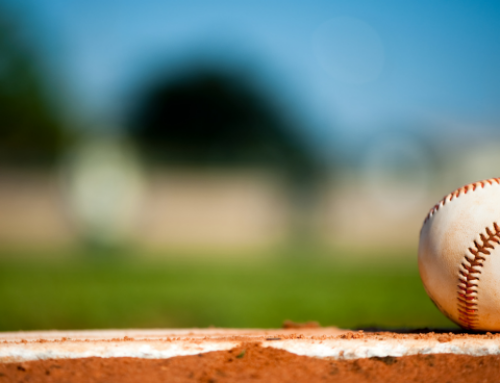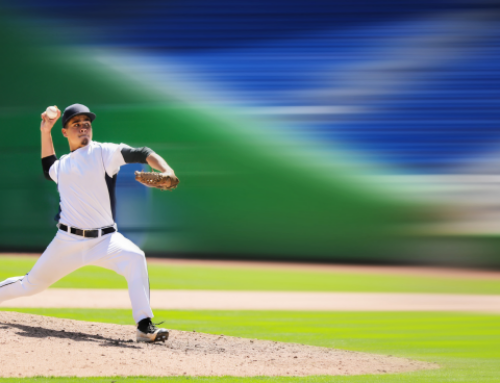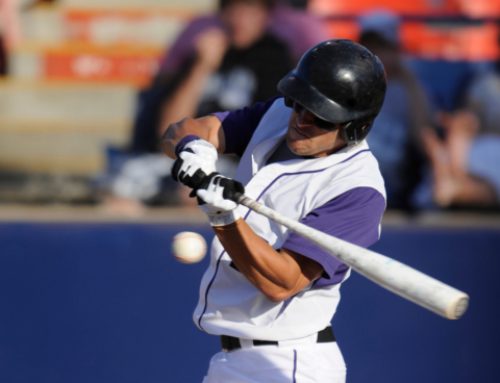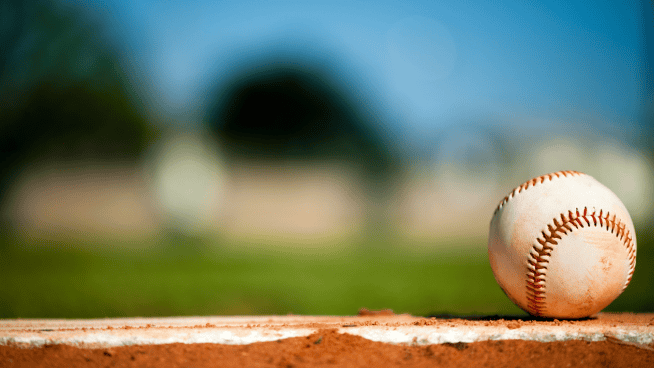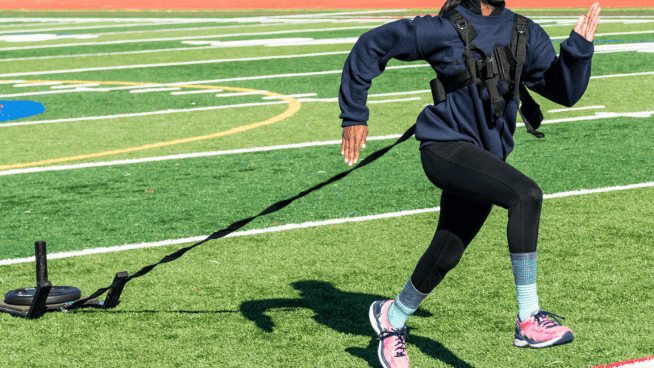He was the kid who got picked last—dead last. Mike Piazza was the final selection in the 62nd round of the 1988 Major League Baseball Draft. Rumors swirled that the Dodgers’ Skipper, Tommy Lasorda, picked him as a favor to long-time friend, Vince Piazza, Mike’s dad. No one thought the kid had a chance.
That was 17 years and more than 400 homeruns ago—more bombs than any other catcher in the history of the game. The 37-year-old, .311-lifetime hitter has found a new home with the San Diego Padres. More impressive than his 1993 NL Rookie of the Year Award and reputation as the best hitting catcher of all time is Piazza’s ability to step back from the game and the cash to recognize what’s really important.
This is the life of Mike Piazza.
STACK: Being the new guy in town, will it be difficult to adjust to new teammates and surroundings?
Piazza: I don’t think it will be hard at all. What is there not to like about this ballpark and the very loyal fans? It’s a great organization with a great owner and great history. Ultimately, when you have people around you who are professional, positive and dedicated, you soak everything up through osmosis. It’s important to have that support group.
STACK: How important is chemistry among players at this level?
Piazza: Really important. That’s something that you can’t define with words, actions or even preparation—it’s sort of an energy that gets into the blood of a winning team. Guys start pulling for each other, and you start finding ways to win games. It starts with the attitude you have when you get out there. I’ve been on some really good teams and some really bad ones, too. And having the attitude that you will do whatever you can to help your team win every day builds chemistry— it’s a snowball effect.
STACK: When you were growing up, did you always dream of playing Major League Baseball?
Piazza: Yeah, and it’s pretty funny you should ask. My second grade teacher wrote me a letter to tell me that she still has a paper I wrote about how I wanted to play Major League Baseball. It definitely starts at a young age, but unfortunately, not everyone is cut out for it. You have to devote all your energy and hard work. It’s not as publicized as the Olympic kid syndrome, but you really have to be dedicated. You end up missing out on a few things when you’re younger, which is fine, because ultimately, your sacrifice gets you somewhere later in life.
STACK: Is it true that you always had a pitching machine set up in your backyard?
Piazza: Yeah, I was really dedicated. There was a time in high school when I started hanging out with friends and became socially active. And that’s healthy to be socially interactive, but for me, once I saw that I wasn’t missing out on a lot, I became more dedicated to what I wanted to do.
STACK: When did you know you had what it takes to make it to the Majors?
Piazza: I played winter ball in Mexico in ’90 or ’91. After that, I went to Big League spring training, and I started hitting the ball really well. I went AA, AAA, Big Leagues all in that year. I kind of knew in spring training when I starting hitting the best of the best; that gave me a lot of confidence. When I was in AA, I was like, “There is no reason why I can’t be hitting Big League pitchers right now.”
STACK: Did you have any major obstacles to overcome while pursuing your dream?
Piazza: There are always obstacles. Anything you do, you run into politics within an organization. Coaches and organizational people have their favorites—people they signed. If they don’t feel like their players are getting their proper due, negative energy is created.
I encountered physical obstacles, too. I’m not necessarily physically blessed. Even at this age—having 14 years in the Bigs—there’s a lot I have to work on every day to become and remain adequate at this level.
STACK: As a 62nd-round draft pick, did you come to the game with the mentality of proving people wrong, or was it more about taking advantage of the opportunity?
Piazza: It wasn’t about proving anyone wrong, but more about proving myself right. I didn’t dwell on the people who didn’t think I could do it. You have to stay away from that, and channel that negative energy. And when I did finally make it, I made sure to not have an I-told-you-so attitude. I figured there are always more mountains to climb and more hurdles to get over, so I couldn’t preoccupy myself with looking back on the ones I’d already conquered. I left it there—in the past—and always looked forward and stayed positive.
STACK: Is the life of a professional baseball player everything you imagined?
Piazza: It’s more. Wow. I have met some incredible people—not just in baseball—some of my best friends are football and hockey players. I’ve met some great entertainers and married a beautiful girl. Baseball has given me so much. It has opened doors and introduced me to so many people with whom I have great interaction and conversation. And they’re not just wealthy or successful people, but interesting, dedicated and artful people who are really deep and have a lot to offer.
STACK: How do you deal with the recognition, success and publicity that come with your achievements?
Piazza: At times, although I’ve never really worked or wanted to be famous or recognized, it has its advantages [laughs]. I’ve been fortunate. Sometimes I get seated in crowded restaurants and things like that. But at times, it has been really uncomfortable for me. I’m a private person, and in this day of all-access, people think my life should be lived on a stage. People need to realize there are boundaries, but they don’t. So I have to create them, and that sometimes makes a negative situation. But I can’t live my life for other people. You have to follow your own heart first.
STACK: Are you comfortable as a professional athlete being viewed as a role model?
Piazza: People do look closely at my life, and my words carry weight in the media. That being said, we’re not perfect. We live lives like everyone else and have human conditions. People are subject to addictions and other problems. Unfortunately, that gets played out publicly on occasion, which can be a little intrusive. But since we know we’re viewed as role models and we’re in the spotlight whether we want it or not, we have to deal with it. We all make mistakes, but people are forgiving. So you just rudder your ship, keep going and try to find happiness.
STACK: What techniques have you picked up along the way to maintain a mental focus throughout the long season?
Piazza: Maintaining your focus is very important. It sounds so basic and cliché, but a healthy diet, adequate rest and taking care of your body are key. I always laugh when I see infomercials for ab and weight loss gimmicks. You can use an apparatus or a crazy diet. But really, to lose the weight, you have to take in fewer calories than you burn. To get stronger, you need some kind of physical activity. I think everyone is looking for a magic shortcut, but it doesn’t exist. You have to go back to the basics—eat well, rest and work your body.
STACK: What do you eat before a game?
Piazza: I try to keep it clean—take in some greens, carbs and raw foods. I’m really into whole wheat, whole grains and organic foods. These brain foods have really helped me out. Unfortunately, all the nutrients and wheat germ are taken out of bleached foods, and those elements have all of the pure, good energy in them.
STACK: It’s well known that you are a music buff. What do you listen to before a game?
Piazza: I go with anything aggressive. I grew up a metal head; I had all the concert t-shirts—Motley Crue, ACDC, Sabbath and Deep Purple. I used to wear them to school all the time. That music works really well for me. I try to put my mind in a state of relaxation and aggression. To play sports, you have to be aggressive at some point, but you need to keep your balance. So it’s a controlled aggression. Music allows me to do that. Now with iPods and everything, you can take your favorite music with you, even into the dugout.
STACK: Do you ever have to deal with being too anxious or nervous?
Piazza: Of course. That’s the fight—that’s what you compete with on a daily basis. Ultimately, the players who prevail are the ones who can control and balance that; they can stay focused without allowing anxiety and adrenaline to take them out of the game. When I get anxious at the plate and start swinging at bad pitches because I am pressing, it starts a downhill effect. Things like that affect your confidence, you get tired more, and you open yourself up to injury. So you have to do whatever you can to stay positive and focused at the plate, on the mound, in the outfield, behind the plate or whatever you do in your sport.
STACK: Why did you decide to represent Italy in the World Baseball Classic?
Piazza: There is no question that I’m an All-American boy. I grew up in this country and love it here, but my grandfather is from Sicily and my grandmother is from Naples. So I figured, what good is a world tournament if it’s just the United States against Cuba or the Dominican Republic? If we are really trying to grow the sport, then I think it will help if I play for my ancestors’ country. We want baseball to be a world game. It’s already popular here and in Cuba, the Dominican, Japan and other countries in Asia. But to make it worldwide, we need to get it going in Europe, Russia and eventually, Africa. That’s what I’m trying to do. You never know. Italy may shock the world, which would be a lot of fun. The one thing I know, though, we’re going to have the best pre- and post-game meals.
STACK: What do you enjoy outside of baseball?
Piazza: I just celebrated my first anniversary; I really enjoy being married. My wife and I have been together for about three and a half years now. We like to have friends over and cook, although she’s more of the cook. I clean up. But all of it is so relaxing for me. We love family and having great conversation. We love going to art shows and the symphony. We try to expand and grow. Everyone should do that. We’ve taken trips to Europe, seen the symphony in Vienna and have gone to museums all over. That is the stuff we are here for; it helps us reach our full potential as human beings. There is no right or wrong about what you should like to do. You just have to figure out what you like and go for it. If you aren’t happy, try to find peace, and a profession that you love. And don’t let money be the determining factor. It should just be a byproduct of what you do. Go after something you have a passion for.
STACK: With the high salaries and current affairs of baseball, have you seen any signs of resentment from the fans?
Piazza: This is an interesting question. I think the game has gone through an evolution over the ages. In their days, Ruth and Gehrig were icons, larger-than-life heroes. The media never exposed them for their weaknesses or negative qualities. Then, during the 60s and 70s, when free agency came about, money and exposure became a bigger part of the game. Guys really started capitalizing on their abilities to play. I’ve been really blessed having had more than my share of the pie. And I appreciate that more than you can imagine. Money is tricky, because it’s okay to celebrate it, as long as you don’t flaunt it or rub it in people’s faces. We’re in a capitalist society, and we all want to make a good living. But there’s definitely a lot of jealousy out there. I’ve never looked in anyone else’s pockets— I don’t look at Bill Gates and resent what he makes, because whatever it is, he’s a smart guy and deserves it. People don’t hand out free money, so you can’t say that someone doesn’t deserve what they make. As an individual you can’t let money define who you are—you have to define your money. When people feel like you’re letting money define you, they get resentful toward you, which is why I look at it just as a byproduct of what I’m passionate about.
Also, there used to be a very close connection between the fans and the athletes, but I think that’s diminished in this day and age of big contracts and exposure. There is a wedge between the player and the workingman who brings his kids to the game. As players, we’re trying to swing the pendulum back the other way and reconnect with the fans.
STACK: When you are done playing baseball, how do you want people to remember you?
Piazza: I haven’t thought much about it. This seems like an overemphasis of legacy and terms like that; and I think the media likes to use buzzwords like that. I just want to be remembered as a guy who didn’t have a lot of physical ability, but was determined, worked hard and didn’t let anyone tell him he couldn’t do it; and then, when he got to the top level, he played hard every day and made the most of his ability. I love everything the game has given me and I would love to give back to it.
STACK: What do you see yourself doing when you’re done playing?
Piazza: I don’t know. I have talked to athletes who’ve dealt with the situation, along with some who just couldn’t let go. I don’t want to be one of those guys hanging around just because I can’t let go. I want to take a year off to detox and refocus. I talked to Wayne Gretzky the other day—a guy I’ve always had a great amount of respect for. He took about five years off and didn’t do a whole lot. Now he is back coaching. But his time off helped him regroup and determine that he wanted to get back in the game.
I had a great time doing color commentary on ESPN during the playoffs, so maybe I would do that. I don’t know about doing it on a daily basis, because that’s a lot of work—almost like playing. I have a lot of respect for the guys who do that, though, because it’s so much work.
STACK: Do you have any advice for high school baseball players?
Piazza: Enjoy the team and enjoy the camaraderie, because you only get one chance at it. Work hard, so you never look back and think what you could’ve done if you’d put more into it. I’m not just talking about becoming a Major League player. Maybe you could’ve gotten a scholarship to a small school, maybe you could’ve gotten some playing time, maybe a scout would have seen you. It only takes a small crack to get that door to bust open. Trust in God. My faith has always been important to me, and I think that foundation will help you get through tough times, not just in sports, but in life in general.
RECOMMENDED FOR YOU
MOST POPULAR
He was the kid who got picked last—dead last. Mike Piazza was the final selection in the 62nd round of the 1988 Major League Baseball Draft. Rumors swirled that the Dodgers’ Skipper, Tommy Lasorda, picked him as a favor to long-time friend, Vince Piazza, Mike’s dad. No one thought the kid had a chance.
That was 17 years and more than 400 homeruns ago—more bombs than any other catcher in the history of the game. The 37-year-old, .311-lifetime hitter has found a new home with the San Diego Padres. More impressive than his 1993 NL Rookie of the Year Award and reputation as the best hitting catcher of all time is Piazza’s ability to step back from the game and the cash to recognize what’s really important.
This is the life of Mike Piazza.
STACK: Being the new guy in town, will it be difficult to adjust to new teammates and surroundings?
Piazza: I don’t think it will be hard at all. What is there not to like about this ballpark and the very loyal fans? It’s a great organization with a great owner and great history. Ultimately, when you have people around you who are professional, positive and dedicated, you soak everything up through osmosis. It’s important to have that support group.
STACK: How important is chemistry among players at this level?
Piazza: Really important. That’s something that you can’t define with words, actions or even preparation—it’s sort of an energy that gets into the blood of a winning team. Guys start pulling for each other, and you start finding ways to win games. It starts with the attitude you have when you get out there. I’ve been on some really good teams and some really bad ones, too. And having the attitude that you will do whatever you can to help your team win every day builds chemistry— it’s a snowball effect.
STACK: When you were growing up, did you always dream of playing Major League Baseball?
Piazza: Yeah, and it’s pretty funny you should ask. My second grade teacher wrote me a letter to tell me that she still has a paper I wrote about how I wanted to play Major League Baseball. It definitely starts at a young age, but unfortunately, not everyone is cut out for it. You have to devote all your energy and hard work. It’s not as publicized as the Olympic kid syndrome, but you really have to be dedicated. You end up missing out on a few things when you’re younger, which is fine, because ultimately, your sacrifice gets you somewhere later in life.
STACK: Is it true that you always had a pitching machine set up in your backyard?
Piazza: Yeah, I was really dedicated. There was a time in high school when I started hanging out with friends and became socially active. And that’s healthy to be socially interactive, but for me, once I saw that I wasn’t missing out on a lot, I became more dedicated to what I wanted to do.
STACK: When did you know you had what it takes to make it to the Majors?
Piazza: I played winter ball in Mexico in ’90 or ’91. After that, I went to Big League spring training, and I started hitting the ball really well. I went AA, AAA, Big Leagues all in that year. I kind of knew in spring training when I starting hitting the best of the best; that gave me a lot of confidence. When I was in AA, I was like, “There is no reason why I can’t be hitting Big League pitchers right now.”
STACK: Did you have any major obstacles to overcome while pursuing your dream?
Piazza: There are always obstacles. Anything you do, you run into politics within an organization. Coaches and organizational people have their favorites—people they signed. If they don’t feel like their players are getting their proper due, negative energy is created.
I encountered physical obstacles, too. I’m not necessarily physically blessed. Even at this age—having 14 years in the Bigs—there’s a lot I have to work on every day to become and remain adequate at this level.
STACK: As a 62nd-round draft pick, did you come to the game with the mentality of proving people wrong, or was it more about taking advantage of the opportunity?
Piazza: It wasn’t about proving anyone wrong, but more about proving myself right. I didn’t dwell on the people who didn’t think I could do it. You have to stay away from that, and channel that negative energy. And when I did finally make it, I made sure to not have an I-told-you-so attitude. I figured there are always more mountains to climb and more hurdles to get over, so I couldn’t preoccupy myself with looking back on the ones I’d already conquered. I left it there—in the past—and always looked forward and stayed positive.
STACK: Is the life of a professional baseball player everything you imagined?
Piazza: It’s more. Wow. I have met some incredible people—not just in baseball—some of my best friends are football and hockey players. I’ve met some great entertainers and married a beautiful girl. Baseball has given me so much. It has opened doors and introduced me to so many people with whom I have great interaction and conversation. And they’re not just wealthy or successful people, but interesting, dedicated and artful people who are really deep and have a lot to offer.
STACK: How do you deal with the recognition, success and publicity that come with your achievements?
Piazza: At times, although I’ve never really worked or wanted to be famous or recognized, it has its advantages [laughs]. I’ve been fortunate. Sometimes I get seated in crowded restaurants and things like that. But at times, it has been really uncomfortable for me. I’m a private person, and in this day of all-access, people think my life should be lived on a stage. People need to realize there are boundaries, but they don’t. So I have to create them, and that sometimes makes a negative situation. But I can’t live my life for other people. You have to follow your own heart first.
STACK: Are you comfortable as a professional athlete being viewed as a role model?
Piazza: People do look closely at my life, and my words carry weight in the media. That being said, we’re not perfect. We live lives like everyone else and have human conditions. People are subject to addictions and other problems. Unfortunately, that gets played out publicly on occasion, which can be a little intrusive. But since we know we’re viewed as role models and we’re in the spotlight whether we want it or not, we have to deal with it. We all make mistakes, but people are forgiving. So you just rudder your ship, keep going and try to find happiness.
STACK: What techniques have you picked up along the way to maintain a mental focus throughout the long season?
Piazza: Maintaining your focus is very important. It sounds so basic and cliché, but a healthy diet, adequate rest and taking care of your body are key. I always laugh when I see infomercials for ab and weight loss gimmicks. You can use an apparatus or a crazy diet. But really, to lose the weight, you have to take in fewer calories than you burn. To get stronger, you need some kind of physical activity. I think everyone is looking for a magic shortcut, but it doesn’t exist. You have to go back to the basics—eat well, rest and work your body.
STACK: What do you eat before a game?
Piazza: I try to keep it clean—take in some greens, carbs and raw foods. I’m really into whole wheat, whole grains and organic foods. These brain foods have really helped me out. Unfortunately, all the nutrients and wheat germ are taken out of bleached foods, and those elements have all of the pure, good energy in them.
STACK: It’s well known that you are a music buff. What do you listen to before a game?
Piazza: I go with anything aggressive. I grew up a metal head; I had all the concert t-shirts—Motley Crue, ACDC, Sabbath and Deep Purple. I used to wear them to school all the time. That music works really well for me. I try to put my mind in a state of relaxation and aggression. To play sports, you have to be aggressive at some point, but you need to keep your balance. So it’s a controlled aggression. Music allows me to do that. Now with iPods and everything, you can take your favorite music with you, even into the dugout.
STACK: Do you ever have to deal with being too anxious or nervous?
Piazza: Of course. That’s the fight—that’s what you compete with on a daily basis. Ultimately, the players who prevail are the ones who can control and balance that; they can stay focused without allowing anxiety and adrenaline to take them out of the game. When I get anxious at the plate and start swinging at bad pitches because I am pressing, it starts a downhill effect. Things like that affect your confidence, you get tired more, and you open yourself up to injury. So you have to do whatever you can to stay positive and focused at the plate, on the mound, in the outfield, behind the plate or whatever you do in your sport.
STACK: Why did you decide to represent Italy in the World Baseball Classic?
Piazza: There is no question that I’m an All-American boy. I grew up in this country and love it here, but my grandfather is from Sicily and my grandmother is from Naples. So I figured, what good is a world tournament if it’s just the United States against Cuba or the Dominican Republic? If we are really trying to grow the sport, then I think it will help if I play for my ancestors’ country. We want baseball to be a world game. It’s already popular here and in Cuba, the Dominican, Japan and other countries in Asia. But to make it worldwide, we need to get it going in Europe, Russia and eventually, Africa. That’s what I’m trying to do. You never know. Italy may shock the world, which would be a lot of fun. The one thing I know, though, we’re going to have the best pre- and post-game meals.
STACK: What do you enjoy outside of baseball?
Piazza: I just celebrated my first anniversary; I really enjoy being married. My wife and I have been together for about three and a half years now. We like to have friends over and cook, although she’s more of the cook. I clean up. But all of it is so relaxing for me. We love family and having great conversation. We love going to art shows and the symphony. We try to expand and grow. Everyone should do that. We’ve taken trips to Europe, seen the symphony in Vienna and have gone to museums all over. That is the stuff we are here for; it helps us reach our full potential as human beings. There is no right or wrong about what you should like to do. You just have to figure out what you like and go for it. If you aren’t happy, try to find peace, and a profession that you love. And don’t let money be the determining factor. It should just be a byproduct of what you do. Go after something you have a passion for.
STACK: With the high salaries and current affairs of baseball, have you seen any signs of resentment from the fans?
Piazza: This is an interesting question. I think the game has gone through an evolution over the ages. In their days, Ruth and Gehrig were icons, larger-than-life heroes. The media never exposed them for their weaknesses or negative qualities. Then, during the 60s and 70s, when free agency came about, money and exposure became a bigger part of the game. Guys really started capitalizing on their abilities to play. I’ve been really blessed having had more than my share of the pie. And I appreciate that more than you can imagine. Money is tricky, because it’s okay to celebrate it, as long as you don’t flaunt it or rub it in people’s faces. We’re in a capitalist society, and we all want to make a good living. But there’s definitely a lot of jealousy out there. I’ve never looked in anyone else’s pockets— I don’t look at Bill Gates and resent what he makes, because whatever it is, he’s a smart guy and deserves it. People don’t hand out free money, so you can’t say that someone doesn’t deserve what they make. As an individual you can’t let money define who you are—you have to define your money. When people feel like you’re letting money define you, they get resentful toward you, which is why I look at it just as a byproduct of what I’m passionate about.
Also, there used to be a very close connection between the fans and the athletes, but I think that’s diminished in this day and age of big contracts and exposure. There is a wedge between the player and the workingman who brings his kids to the game. As players, we’re trying to swing the pendulum back the other way and reconnect with the fans.
STACK: When you are done playing baseball, how do you want people to remember you?
Piazza: I haven’t thought much about it. This seems like an overemphasis of legacy and terms like that; and I think the media likes to use buzzwords like that. I just want to be remembered as a guy who didn’t have a lot of physical ability, but was determined, worked hard and didn’t let anyone tell him he couldn’t do it; and then, when he got to the top level, he played hard every day and made the most of his ability. I love everything the game has given me and I would love to give back to it.
STACK: What do you see yourself doing when you’re done playing?
Piazza: I don’t know. I have talked to athletes who’ve dealt with the situation, along with some who just couldn’t let go. I don’t want to be one of those guys hanging around just because I can’t let go. I want to take a year off to detox and refocus. I talked to Wayne Gretzky the other day—a guy I’ve always had a great amount of respect for. He took about five years off and didn’t do a whole lot. Now he is back coaching. But his time off helped him regroup and determine that he wanted to get back in the game.
I had a great time doing color commentary on ESPN during the playoffs, so maybe I would do that. I don’t know about doing it on a daily basis, because that’s a lot of work—almost like playing. I have a lot of respect for the guys who do that, though, because it’s so much work.
STACK: Do you have any advice for high school baseball players?
Piazza: Enjoy the team and enjoy the camaraderie, because you only get one chance at it. Work hard, so you never look back and think what you could’ve done if you’d put more into it. I’m not just talking about becoming a Major League player. Maybe you could’ve gotten a scholarship to a small school, maybe you could’ve gotten some playing time, maybe a scout would have seen you. It only takes a small crack to get that door to bust open. Trust in God. My faith has always been important to me, and I think that foundation will help you get through tough times, not just in sports, but in life in general.

